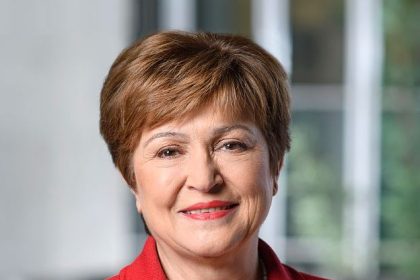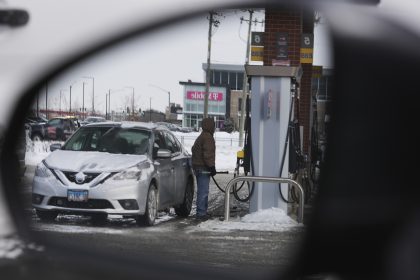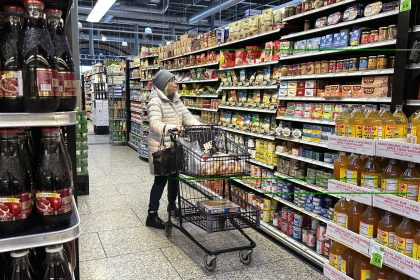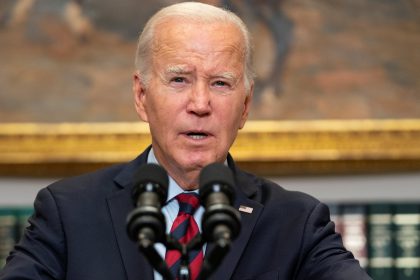Record Number of Americans Have Bank Accounts, FDIC Says

WASHINGTON — Despite a global pandemic that stalled state and local economies for months, a record 96% of Americans had bank accounts in 2021, according to a new survey released Tuesday by the Federal Deposit Insurance Corporation.
The FDIC’s “2021 National Survey of Unbanked and Underbanked Households” also found an estimated 4.5% of U.S. households (representing 5.9 million households) lacked a bank or credit union account, the lowest national unbanked rate since the FDIC survey began in 2009.
“During the pandemic, consumers opened bank accounts to access relief funds and other benefits quickly and securely,” said FDIC Acting Chairman Martin J. Gruenberg in a written statement.
“Safe and affordable bank accounts provide a way to bring more Americans into the banking system and will continue to play an important role in advancing economic inclusion for all Americans,” Gruenberg continued. “Today’s results highlight the importance of ensuring consumers who are receiving benefits or starting a new job, two key bankable moments, can easily find and open a bank account that meets their needs.”
According to FDIC’s latest biennial survey, approximately 1.2 million more households have opened bank accounts since 2019.
Nearly half of newly banked households (45% or about 1.9 million households) reported that their receiving government payments during the pandemic contributed to their decision to open an insured bank or credit union account.
For recently banked households that started a new job, about a third (33.1%) said it contributed to their decision to open a bank account.
Meanwhile, 14.1% of households (representing 18.7 million households), were underbanked in 2021, meaning they had a bank or credit union account and used nonbank financial products and services.
Since 2009, the FDIC has asked households about their use of banking and financial products and services through the most comprehensive survey of its kind.
In 2011, 8.2% of households were unbanked, and the improvement from that point represents 5 million additional households with banking relationships over the most recent decade.
The survey also found that being “unbanked” or “underbanked” remains a problem for minorities.
In 2021, 2.1% of White households were unbanked, compared with 11.3% of Black households and 9.3% of Hispanic households.
While this gap is sizable, it is notably smaller than just two years prior when the unbanked rate in 2019 among White households was 2.5% compared to 13.8% and 12.2% among Black and Hispanic households, respectively.
In 2021, 9.3% of White households were underbanked, compared with 24.7% of Black households and 24.1% of Hispanic households.
The survey also found the use of mobile banking increased sharply among banked households between 2017 (15.1%) and 2021 (43.5%), and was the most prevalent primary method of account access.
Use of a bank teller declined but remained prevalent for certain segments of the population, the report said.
Of those households who still do not have a bank account, about 21.7% said they did not have enough money to meet the minimum balance. Interestingly, the second most cited main reason for not having an account was “don’t trust banks.”
The proportion of unbanked households citing fees or minimum balance-related reasons for not having a bank account fell from 38% in 2019 to 29.2% in 2021.
Use of some nonbank financial transaction services, such as check cashing and nonbank credit products, including payday or pawn shop loans, continued to decline.
Unbanked households’ use of nonbank check cashing fell from 30.2% in 2017 to 21.8% in 2021.
Similarly, use of nonbank credit also declined. In 2017, 7.4% of households had used at least one nonbank credit product tracked by the survey. In 2021, that share fell by 40% to 4.4% of households using those same products.
The survey also found that nonbank online payment services such as PayPal, Venmo and Cash App have quickly become a common tool for many households — banked and unbanked — to conduct financial transactions. Nearly half of all households (46.4%) used a nonbank online payment service in 2021, including two-thirds of households younger than 35.
“Banked households appear to be using nonbank online payment services in conjunction with banking products by linking them to credit cards or bank accounts, while unbanked households are frequently using these services in place of a bank account,” Gruenberg said. “The FDIC will continue its educational and outreach efforts to help consumers understand the benefits of a bank account, the consumer protections they afford and the applicability of deposit insurance.”
Dan can be reached at [email protected] and @DanMcCue
























